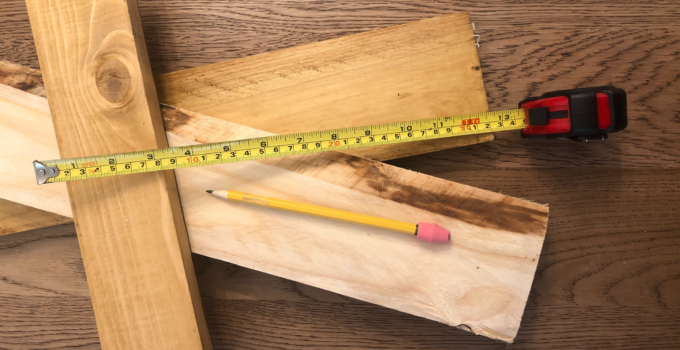Have you ever been in the middle of a project and suddenly realized that something has gone terribly wrong? I recently built myself a storage bench for our outdoor space. After sanding and staining all the parts, I realized that my boards were too wide for the plans I was using. At that point, I had to drop everything and go back to the plans, doing on-the-fly math to figure out how to salvage my bench. It ended up working out, but I could have benefited from doing a pre-mortem on the project.
What is a Pre-Mortem?
A past boss introduced me to the idea of a pre-mortem. I was aware of post-mortems in the context of theatre. After a show, everyone involved sits down and does a review of how every part of the process went. Then, you identify problems and talk through how to better prepare next time. But my boss encouraged us to preempt that process.
Before launching a product, we would have a dedicated meeting with our cross-functional team to talk through issues. We would list out everything we could possibly imagine going wrong – supply shortages, misbalanced stock, product expiration – and figure out what we would do if that happened.
The key to a pre-mortem is to deliberately record the problem, the solution, and who will do it.
Benefits of a Pre-Mortem
Admittedly, you can solve problems without doing a pre-mortem. I did with my woodworking project! But there are clear benefits to deliberately thinking through your projects before you start.
Shorter Reaction Times
When you’ve taken the time to think through obstacles before you’re in the thick of working on a project, you’ll be able to react faster. Instead of having to interrupt your work and shift your brain into problem-solving mode, you can skip straight to executing your solutions.
Decreases Negative Reactions
As you might imagine, I was pretty pissed off when I realized that every single one of my damn boards was too wide. I had a wave of anger and frustration – I didn’t know if I’d be able to fix this. I might have spent all my time and money to have a pile of garbage boards.
Dedicating time to thinking through the problems before they happen will help you skip right over that wave of negative emotions. You thought through what problems might happen, and will be prepared to take them in stride as they happen – and problems always happen.
Efficiency over Time
The first time we did a pre-mortem with our cross-functional team, we didn’t predict every issue that came up following the product launch. But the second time, we didn’t need to brainstorm as much. We had our list we had brainstormed for the first launch, plus the problems that came up in the first launch that we hadn’t prepared for. By the fourth or fifth product launch, we didn’t need to brainstorm at all! We simply sat down and agreed to the solutions to the likely problems and who would be in charge of fixing them.
Even if you aren’t doing the same kinds of problems over and over again, you can use this process to consistently solve the same types of problems you might have. My woodworking project showed that I’m not great at attention to detail. And that’s not confined to woodworking! Acknowledging that it’s not a strength of mine helps me know when to get a second set of eyes when I start a new project.
Pre-Mortems in your Personal Life
So pre-mortems are all well and good in the office, but they can also be useful in your day-to-day life. It might seem silly to apply this process to the following scenarios. But give it a try – it might work for you!
Vacations
I don’t know how you plan your vacations – you could be spontaneous like my husband or be a meticulous itinerary-builder like me. Either way, you’ve probably run into an issue that derailed the day. Maybe you bought tickets for the wrong day, forgot to pack the sunscreen, or maybe everyone got hungry and crabby.
Next time you’re prepping for a trip (after COVID, please), schedule a quick meeting with whoever you’re going with. That could just be me, myself, and I, but make the time. Mentally walk through your trip – either the itinerary, if you make one, or imagine what you want to do while you’re there. Now, what could go wrong? Make sure you have the sunscreen packed. Figure out what grocery stores are available to pick up a snack, if you need one. Double-check that any reservations you made were on the day you thought they were.
My husband and I have a mental checklist of things that we’ve forgotten to pack in the past. Part of our vacation pre-mortem is to play a game we call “What did we forget to pack?”. We always forget something. And whoever figures out what we forgot, wins.
(One time, I forgot my wallet. I “won” the round when I went to pay for breakfast at the train station. It didn’t feel like winning.)
Grocery Trips
Ok, hear me out on this one. How many times have you started prepping dinner, only to realize you forgot to buy pasta – for the SPAGHETTI? A pre-mortem for groceries could be planning for an extra meal just in case, ensuring you have money in the budget to order out in case of disaster, or even just making sure you have doubles of your staples in the cupboard.
Personal Projects
If you’re a scanner personality like me, you have a lot of personal projects. It might be worthwhile to start thinking through what has gone wrong in the past. Then, you can build a plan for solving those problems. You probably do this naturally, but forcing yourself to deliberately think through each of the possibilities will equip your brain with the solutions to your problems before you even encounter the problem in the first place! In the end, it will enable you to enjoy your hobbies that much more.



